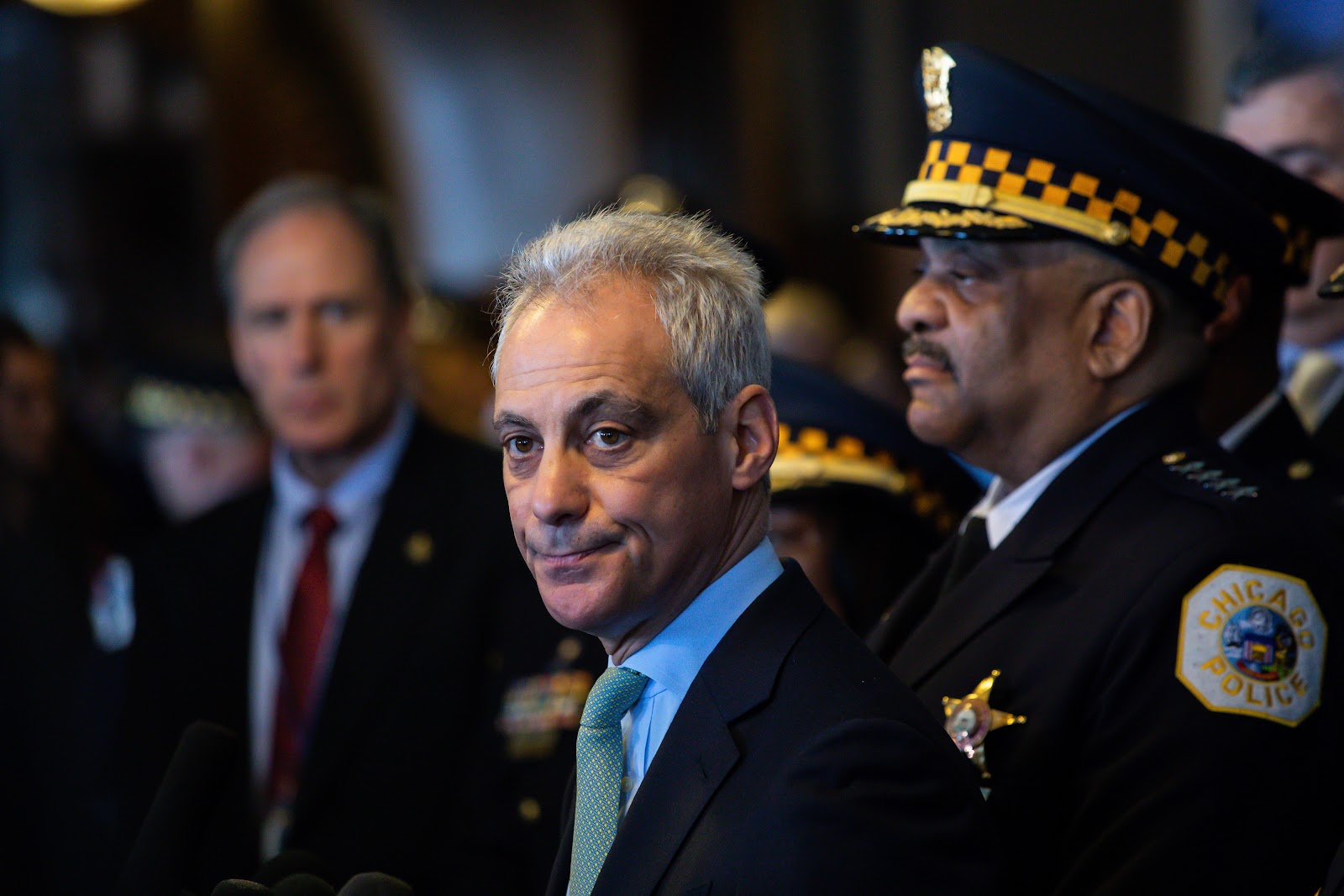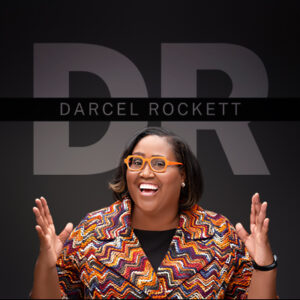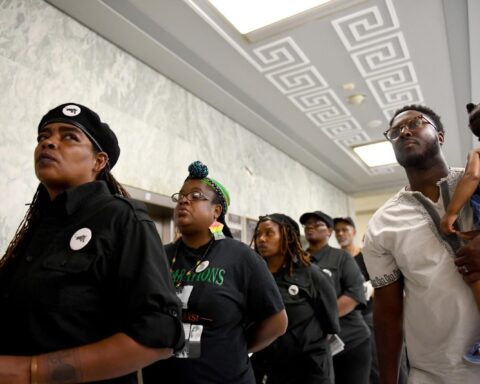Aghast. That’s one way to describe the feelings Mayor Rahm Emanuel and police Superintendent Eddie Johnson expressed after hearing that prosecutors had abruptly dropped all charges against Jussie Smollett.
The “Empire” actor claimed to be the victim of a racist, homophobic Streeterville attack Jan. 29. Following a police investigation, a grand jury indicted him on 16 counts of disorderly conduct for staging the attack and lying to police.
Sixteen. It’s a number the city’s criminal justice system is familiar with (see the 16 shots officer Jason Van Dyke fired at Laquan McDonald in 2014). The case left Chicago’s black community enraged about Van Dyke’s lenient, not-quite-seven-year jail sentence.
To Emanuel and Eddie Johnson and citizens who are now enraged, surprised, flabbergasted, confused — who have lost faith in a justice system they thought they understood — I say, welcome.
Welcome to the world of Chicagoans on the other side of the blue line — in other words, those not in power. A world that watches time and time again as officers serve no jail time for shooting unarmed people of color. Or, if they are convicted, receive a slap on the wrist when it comes to sentencing.
It doesn’t feel good, does it? Feels as if you’re out of the loop? In Bizarro World? As if everyone can see something is amiss, but still nothing is done?
His comments sound like a song on a continuous loop:
“Where is the accountability in the system?”
“You cannot have, because of a person’s position, one set of rules apply to them and another set of rules apply to everybody else.”
“From top to bottom, this is not on the level.”
Trump weighed in, tweeting Thursday that the FBI and Department of Justice will review the case, calling it “outrageous” and “an embarrassment to our Nation!”
Prosecutors claimed to have overwhelming evidence against Smollett, yet the court proceeding was over within minutes. He agreed to forfeit the $10,000 he’d posted for bond and perform community service (which he completed in two days’ time), but was not required to admit wrongdoing. The entire court file has been sealed at the defense’s request.
Anyone can now view the 61-page police investigation file, which includes details about the alleged attack and witness interviews. It may spark strong feelings (dumbfounded?) akin to reading detail after detail about investigations of police shootings of unarmed black people: Conclusions are reached, but is justice served?
Family and friends of victims are left to wonder how “I feared for my life” becomes reason enough for a mistrial or acquittal.
As when Cleveland police officer Timothy Loehmann fatally shot 12-year-old Tamir Rice (who was holding an Airsoft gun) in 2014 but was never charged.
Or when a jury acquitted neighborhood watch volunteer George Zimmerman in the fatal shooting of Trayvon Martin in 2012.
Or in 2014, when John Crawford III was killed by officer Sean Williams in an Ohio Walmart, and a U.S. attorney and the Department of Justice found insufficient evidence to pursue charges.
Or when a judge ended the trial of Chicago police detective Dante Servin, saying he was wrongly charged by the state’s attorney’s office, after he killed Rekia Boyd as she stood in an alley with a group of friends in 2012.
Or when Eric Garner was choked to death by New York police officer Daniel Pantaleo in 2014 and a grand jury declined to indict him.
Or when Stephon Clark was shot to death last year by two officers in Sacramento, Calif., who also aren’t facing charges.
And when detective David March, patrolman Joseph Walsh and officer Thomas Gaffney were acquitted of conspiracy, official misconduct and obstruction of justice in the Laquan McDonald case.
The list goes on and on. The names are many, the tears are even more.
Some will argue that comparing these cases to Smollett’s is apples to oranges. That his case left no one hurt (if you don’t count the city’s wallet and Smollett’s career prospects), and police-involved shootings yield death tallies.
But at least now those in power, and Chicagoans who are peeved that Smollett’s case didn’t go further, feel one iota of what the black community feels every day. Anger that won’t abate. Disbelief. Any number of emotions that take up space in the dark area of the psyche.
For Smollett, there will be no trial or verdict. The dropping of charges Tuesday provided an ending. And endings aren’t always happy, fair or just.
We, in the black community, are all too familiar with that scenario. To that, we say to the newly incensed: “Welcome to the table. Have a seat.”



